The Department is equipped with 10 labs, 3 advanced labs (Research, PLC Lab and Texas Instruments Lab), departmental computer centre, departmental library, classrooms with modern teaching aids and staff rooms. The department library provides useful resources to the students with a rich collection of titles, journals, magazines, reference books, handbooks, previous question papers bank, previous Mini and Main project reports. The department promises to enhance the quality of education, academic infrastructure and technical research with innovation. The institute is committed with right knowledge transfer, wisdom and creativity so that students come out with flying colours. Laboratory education is an important part of the engineering curricula. Department has 13 laboratories which include Microprocessors, Microwave, DSP etc. Department constantly modernizes its infrastructure facilitates to keep abreast with the rapidly changing technological trends in the field. At Present the Department of Electronics and Communication Engineering is having the following labs:
The motto of ECE Department is “To facilitate the students to thoroughly appreciate and assimilate the nuances of the discipline with a particular accent on empiricism”
AC & DC LAB
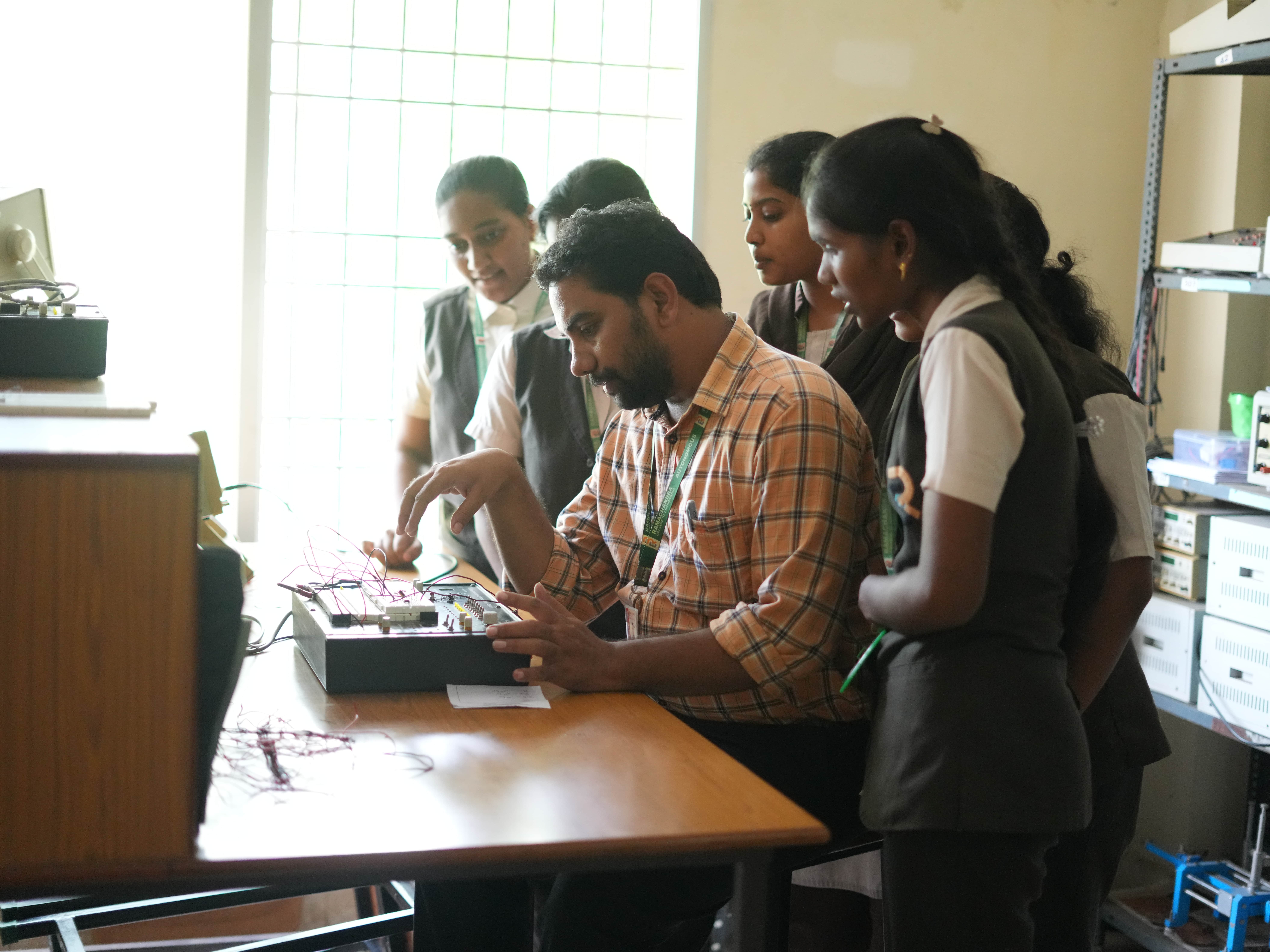
1.This lab is equipped with Function Generators, Regulated Power Supplies,
Storage
Oscilloscopes, Spectrum Analyzers and many state of the art Electronic
components to
study and analyse the characteristics of Analog signals in time and frequency
domains.
2. The modulation and de modulation techniques are simulated using MATLab2008b
and
MULTISIM Software and are physically verified with dedicated Trainer modules.
ELECTRONIC DEVICES AND CIRCUITS LAB
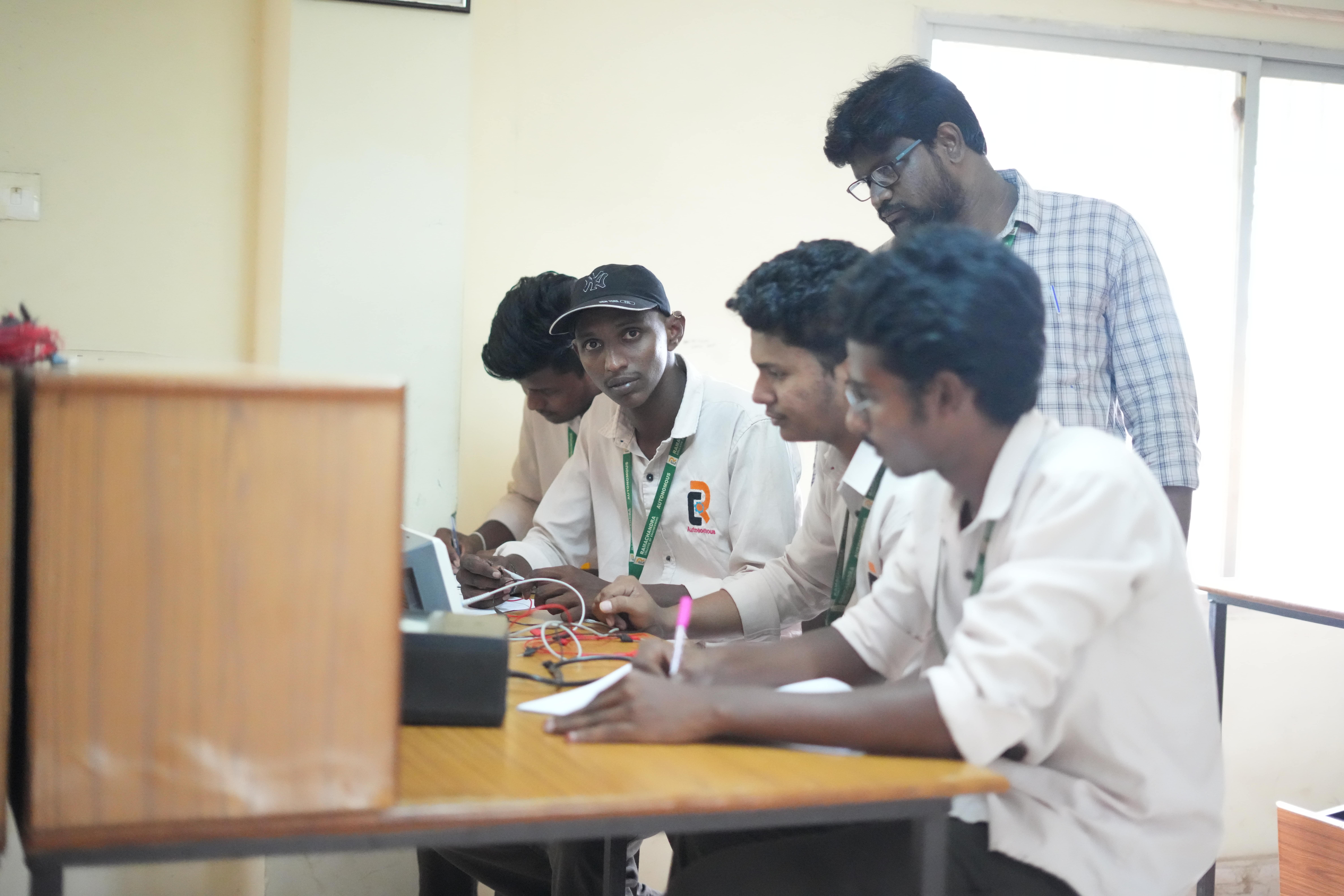
This basic lab is equipped with all the necessary modern infrastructure viz.,
CROs,
Function Generators, Regulated Power Supplies and basic electronic components to
study and analyse the characteristics of Semiconductor devices and circuits
MICROPROCESSORS & MICROCONTROLLERS LAB
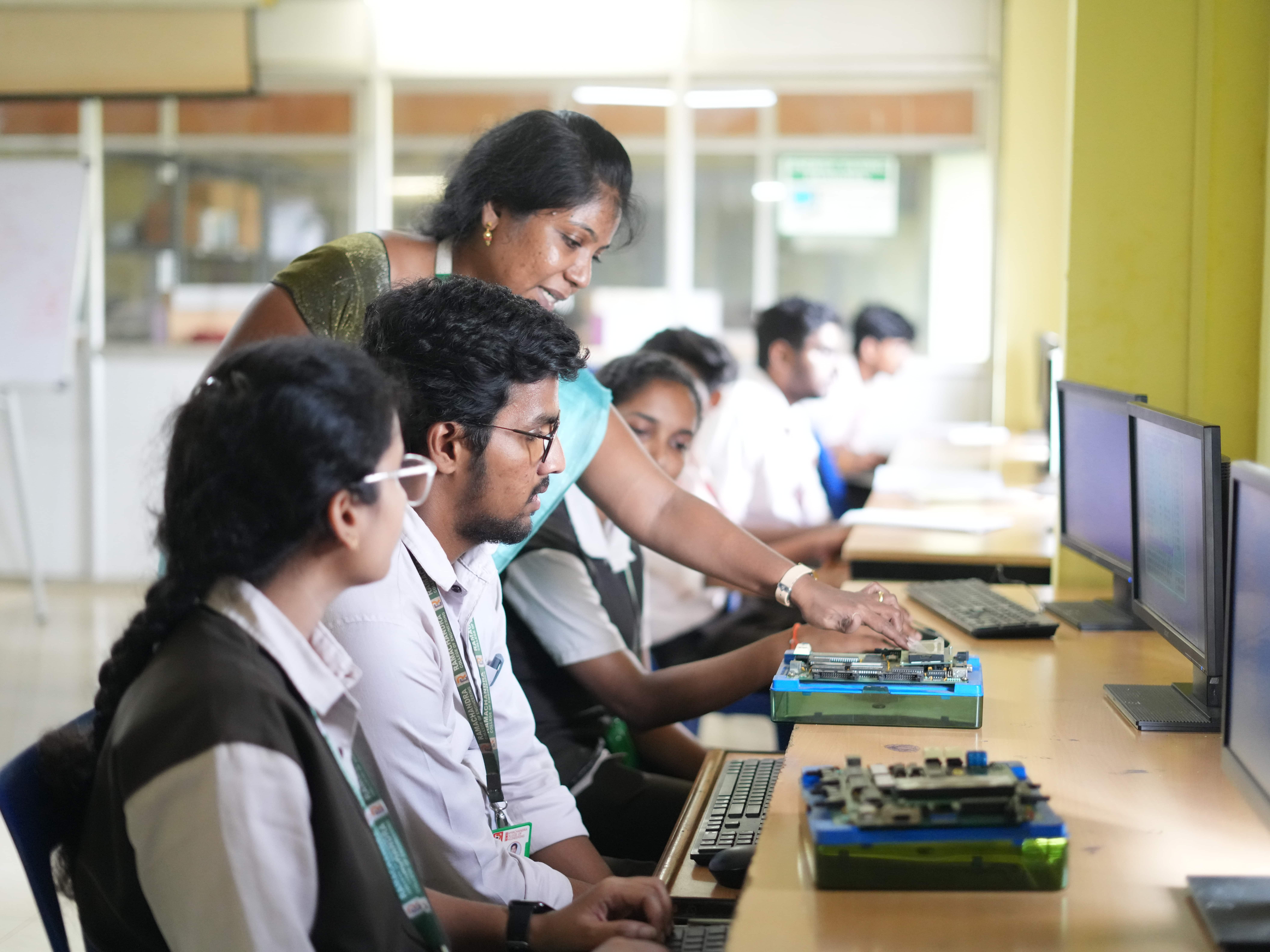
1. This advanced lab is provided with 8086 microprocessors, 8051 Micro
controllers,
Embedded Development kits, Keil µvision, MASAM, TASAM, and various interfacing
modules.
2. To suit to the needs of the JNTUK curriculum, Programming and interfacing to
the
real world applications is learnt here. It is one of the vital area in the
electronics and communication engineering.
DIGITAL SIGNAL PROCESSING LAB
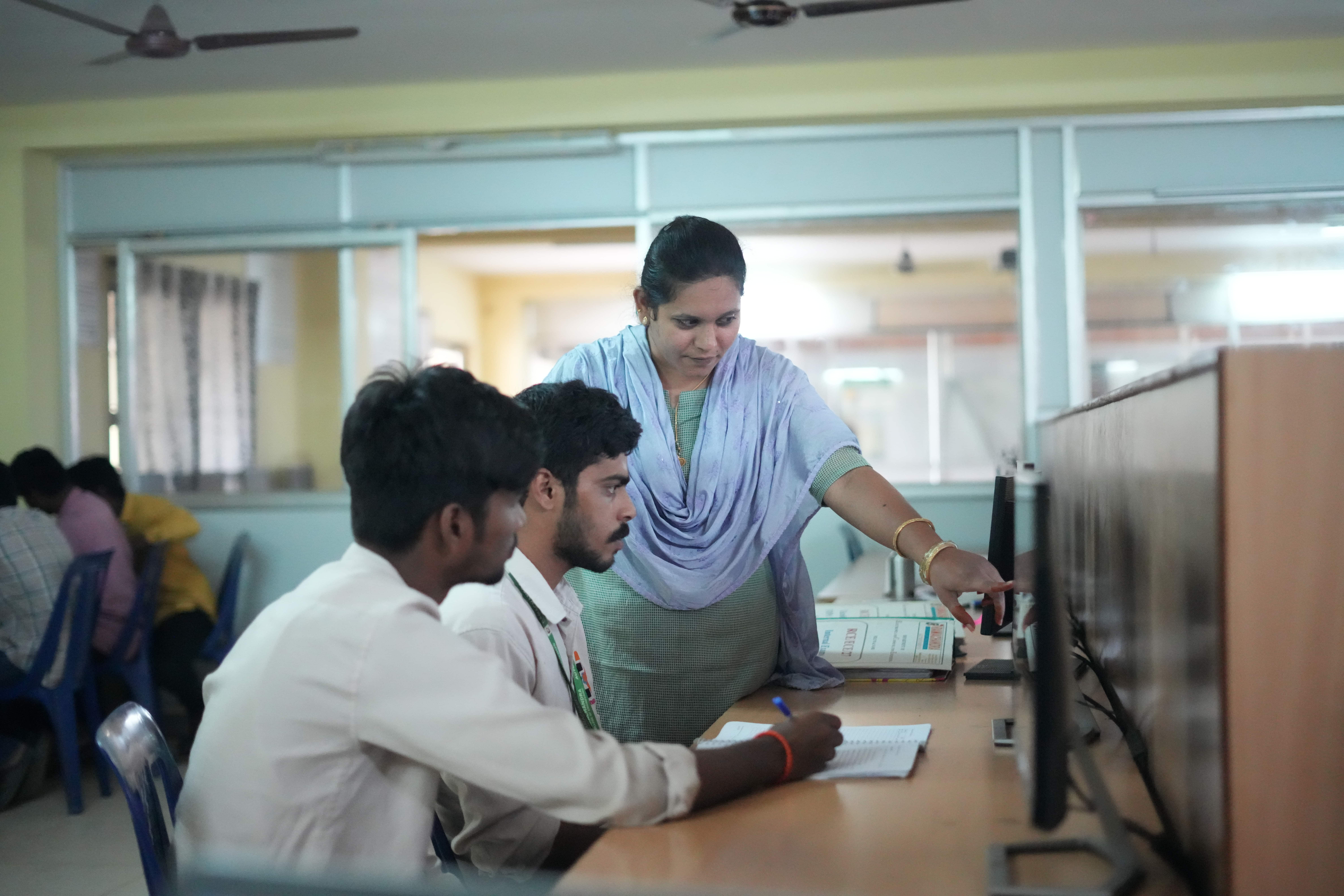
1. This lab is equipped with TMS320C6713 DSP Development kits, Code Composer
Studio,
Filter Design-Pro and MATLAB Software with all necessary tool boxes.
2.Students are trained at building Real time Signal processing applications,
algorithm verification etc.,
VLSI DESIGN LAB
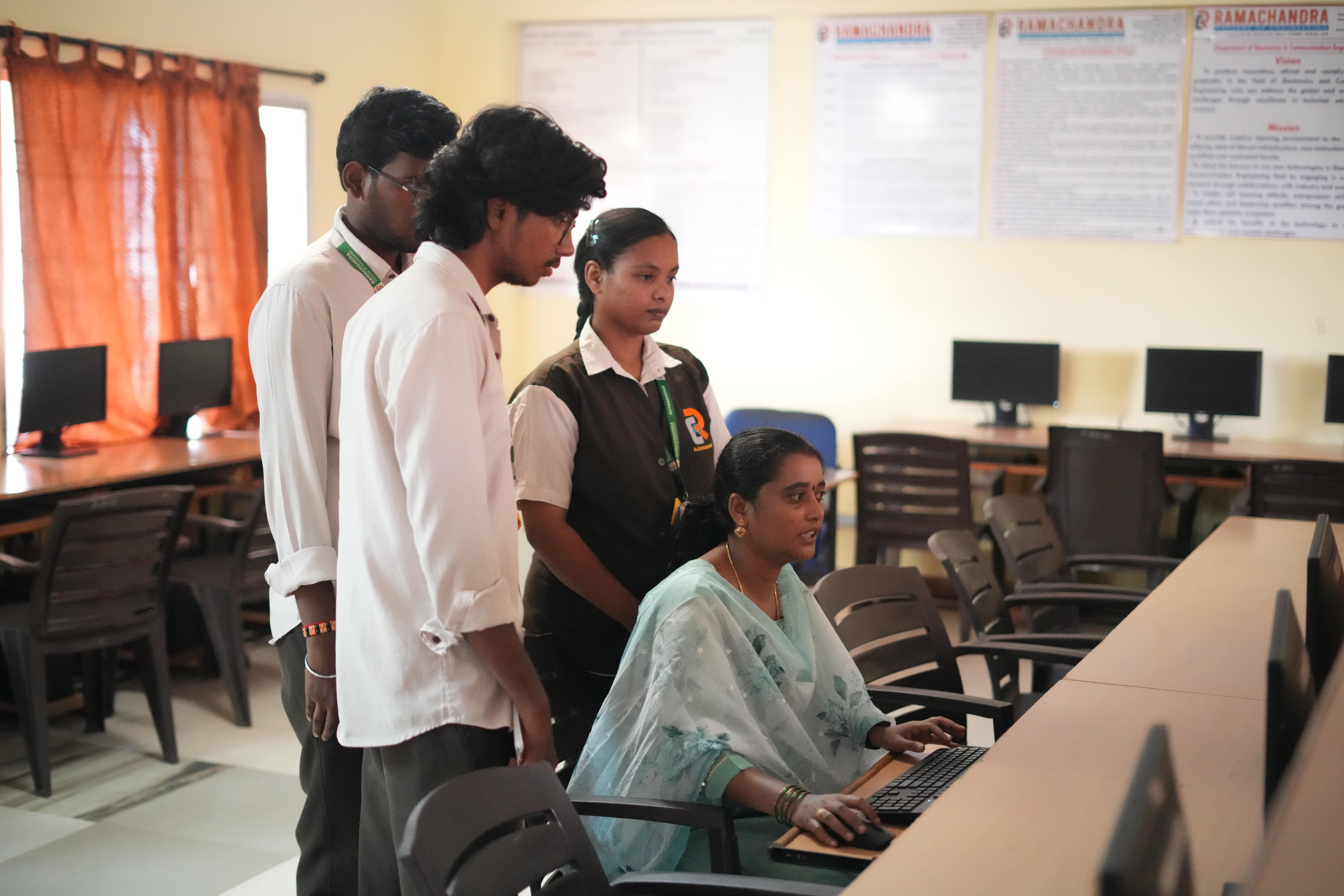
1. The VLSI Design Lab has well-established research facilities in the analog and digital domains, with the infrastructure comprising advanced configuration and support available for almost all the latest CAD tools from Xilinx ISE12.4, Mentor Graphics, pspice, and Spartan -3 FPGA kits which gives more strength for the students for their success in very emerging VLSI.
LINEAR INTEGRATED CIRCUIT APPLICATIONS LAB
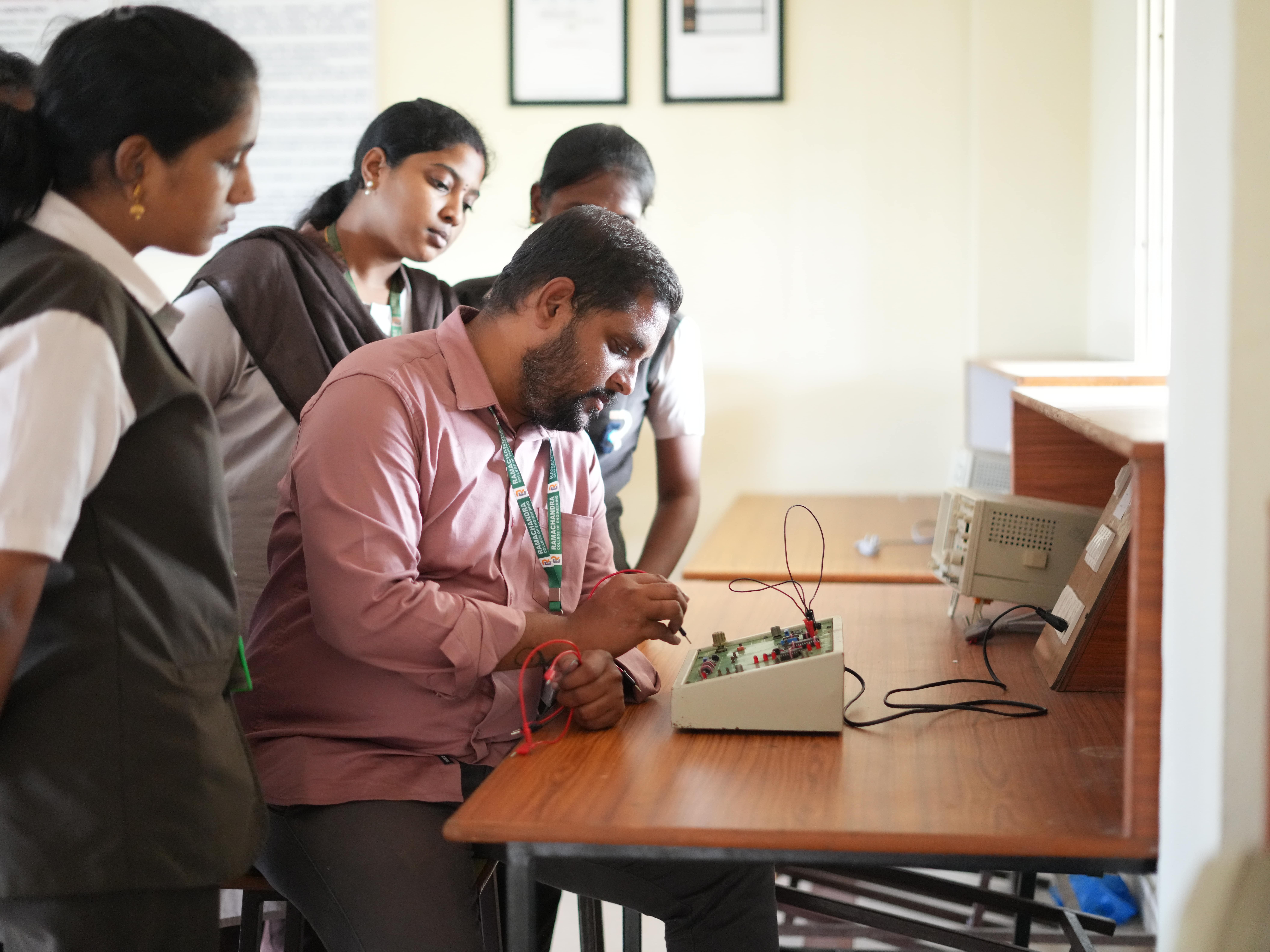
1. In this equipped lab the students can encompasses a broad knowledge of applying different analog ICs in Linear and Non Linear Applications and also they are trained at using of 555 timers, regenerative circuits, ADC and DAC trainer modules.
DSD & DICA Lab
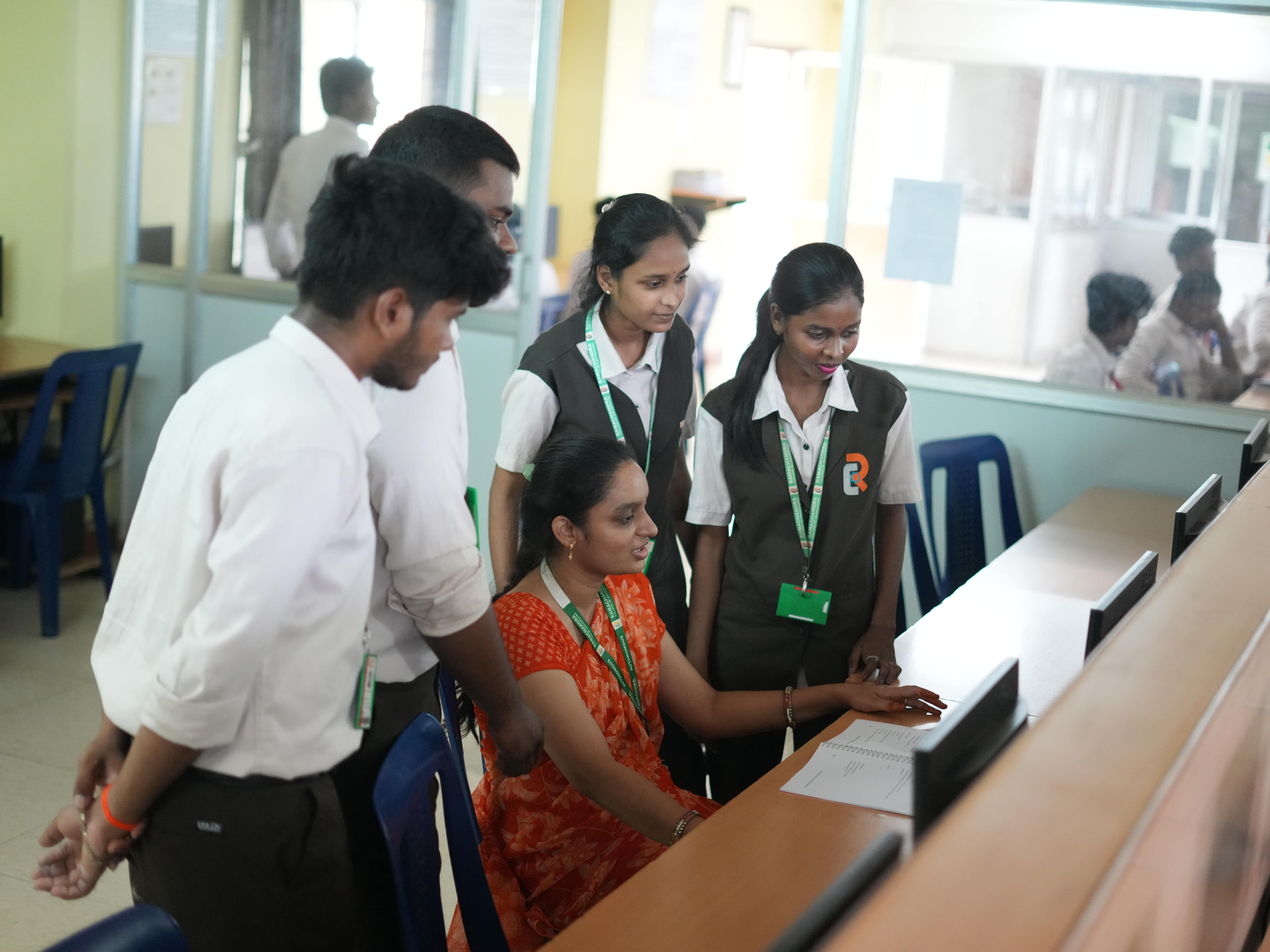
1. The students are trained at using different ICs in real time applications and
able
to realize the Combinational and Sequential Circuits using 74LSXX Digital IC
families like Flip-Flops, Counters and Registers etc.
2. In this lab students perform simulation of combinational and sequential logic
circuits using modern xlinx and mentor graphics.
STLD LAB
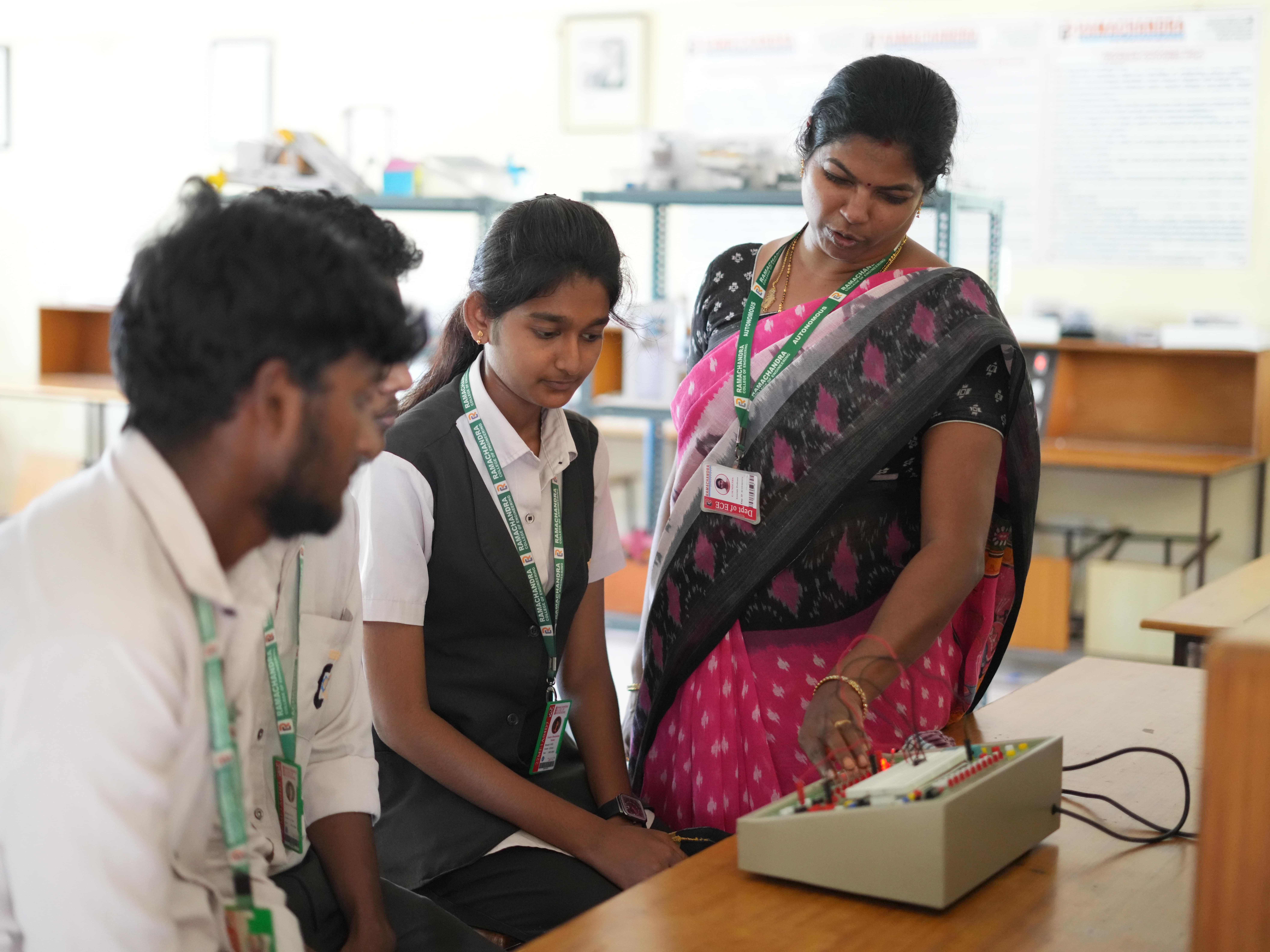
1. This advanced PLC lab contains multiple workstations equipped with computers,
PLC
units and other interfacing devices to train students how to program and upload
ladder logic code.
2. A digitally operating electronic apparatus which uses a programming memory
for
the internal storage of instructions for implementing specific functions such as
logic, sequencing, timing, counting and arithmetic to control through digital or
analog modules, various types of machines or process.
RESEARCH & DEVELOPMENT LAB

| S.No | Name of the Facilities | Utilization |
| 1. | Matlab licensed version software and DSP kits in DSP lab – 30 user | UG/PG students, Research Scholars and Faculty members utilize for their mini projects, projects, and research activities. |
| 2. | Microwind Licensed Version software -30 user | UG/PG students, Research Scholars and Faculty members utilize for their mini projects, projects, and research activities. |
| 3. | Xilinx vivado-30 user | UG/PG students, Research Scholars and Faculty members utilize for their mini projects, projects, and research activities. |
| 4. | Keil Micro Vision 4 -open Sources | UG/PG students, Research Scholars and Faculty members utilize in their mini projects, projects, and research activities |
| 5. | Tasm- Open Source | UG/PG students, Research Scholars and Faculty members utilize in their mini projects, projects, and research activities |
| 6. | HFSS-25 user | UG/PG students, Research Scholars and Faculty members utilize in their mini projects, projects, and research activities |
| 7. | P-Spice-Open Source | UG/PG students, Research Scholars and Faculty members utilize in their mini projects, projects, and research activities |
| 8. | Protues -Open Source | UG/PG students, Research Scholars and Faculty members utilize in their mini projects, projects, and research activities |
| 9. | Dip-Trace-Open Sorce | UG/PG students, Research Scholars and Faculty members utilize in their mini projects, projects, and research activities |
The Department Library houses a curated collection of reference books, specifically selected to support the academic and research needs of our faculty and students. These resources are available strictly for reference purposes and may be accessed during regular college hours. Students and faculty are encouraged to make the most of this facility to enhance their learning and teaching experience.
